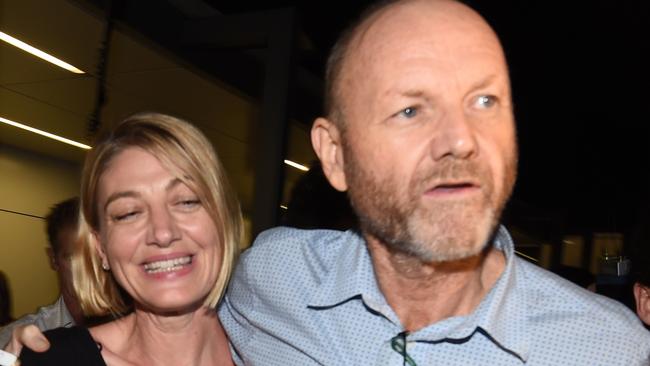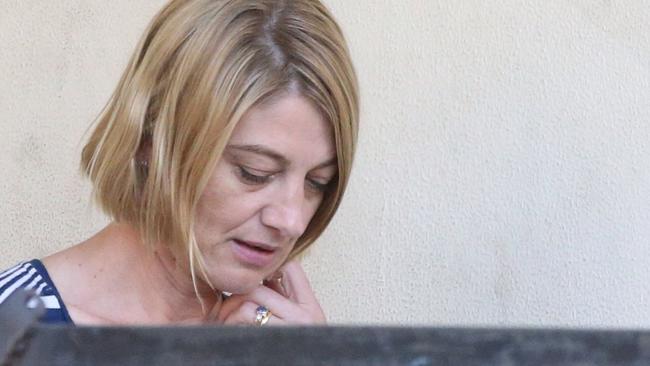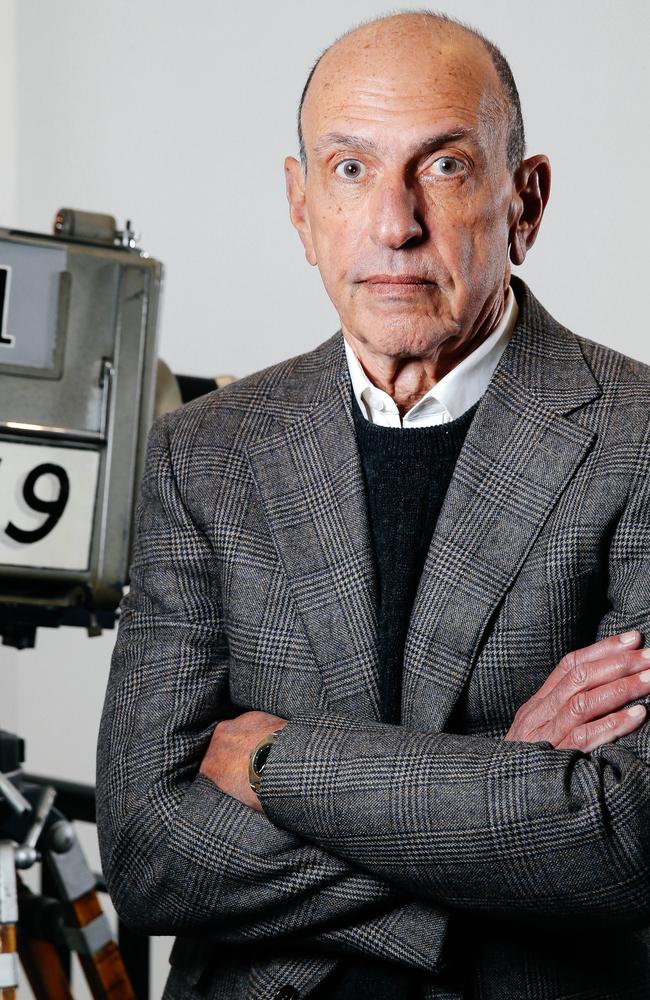60 Minutes: The questions Nine still hasn’t answered
SENIOR producer Stephen Rice is the fall guy of 60 Minutes’ botched child recovery, but there are still questions Nine has to answer.

TV
Don't miss out on the headlines from TV. Followed categories will be added to My News.
THE botched kidnapping attempt that landed four 60 Minutes crew and mother Sally Faulkner in a Beirut jail found its fall guy with the sacking of senior producer Stephen Rice, but there are still questions to answer.
Rice left Nine “immediately” as findings of the company’s explosive internal report into the Beirut disaster were made public, and he was singled out as the main person responsible for the story.
Five others — including reporter Tara Brown, former 60 Minutes executive producer and now head of sport Tom Malone — have been “censured”, and received formal warnings, but Nine did not expand on the nature of those censures.
Brown, and the other two members of the “Beirut Four” — sound recordist David Ballment and cameraman Ben Williamson — are due back at work next week, having been on leave since they were released from jail and fled Lebanon on April 20, but will be back at work next week.
Nine confirmed the trio’s return, but would not comment on whether they would be banned from overseas assignments given the possibility of kidnapping charges in Lebanon still hanging over their heads.
“Assignments will be determined by them and the executive producer,” was all Nine said.
And it’s unlikely we will be hearing much from Brown or anyone at the centre of the saga anytime soon.
“Until these matters are clarified, Nine, 60 Minutes and the members of the crew remain limited in what they can say about these events so as not to prejudice any legal proceedings in Lebanon,” Nine said.

Independent lawyers have raised the possibility that if the three are charged with, and found guilty of, kidnapping in absentia in Lebanon, they would not be able to travel to many overseas assignments because of the danger they could be extradited to Lebanon.
Nine also won’t say if it will run a story at some point, although there is speculation over how much footage would actually be available for them to use. The father Ali Elamine has said part of the deal to drop civil charges included an agreement they would not use footage shot in Beirut of his children.
And the network remains silent on pleas from Adam Whittington and his colleagues in their bid to get out of jail.
Nine’s review panel — composed of founding 60 Minutes boss Gerald Stone, ex-A Current Affair boss and senior Nine executive David Hurley and legal counsel Rachel Launders found “systematic failures at every level” of the way the botched kidnapping story was handled.
Stone described it as “the gravest misadventure in the program’s history” and said “inexcusable errors were made”.

These included a failure to ask “critically relevant questions” about the story not being raised “by the executive producer who approved it, the senior producer who proposed it, or the reporting team that volunteered to participate in it”.
Nine CEO Hugh Marks said 60 Minutes got too close, with damaging consequences and exposed “60 Minutes and Nine to significant reputational damage”.
“The execution of this story it was inappropriate, and at odds with our standard procedure, for a payment to be made directly by 60 Minutes to the recovery agency that had been independently contracted by Sally Faulkner,” Marks said.
“It was also inappropriate, with the risks involved for our crew, not to have consulted with Nine’s security advisers before the story was finalised.”
Whether Rice’s departure, the censures, and new systems of reporting are enough to salvage what Marks concedes is a damaged brand remains unclear.
No-one at @Channel9 has deeper credentials in serious journalism than #StephenRice. He's now the scapegoat for the #60mins fiasco.
— Hugh Riminton (@hughriminton) May 27, 2016
Reaction on social media ranged from the outraged to the sceptical and humorous.
Channel Ten anchor Hugh Riminton made no secret of his disgust at Rice being made the ‘scapegoat’ for the ‘fiasco’.
In two furious tweets Riminton attacked Rice’s departure, saying nobody at Channel Nine had ‘deeper credentials in journalism’ than Rice. He added “The 60 Minutes soundman gets a formal warning, but senior show executives get off scott free for #childabduction fiasco. Bizarre.”.
Unsurprising move by ch9 to throw #60minutes producer on the ground under the bus for the Lebanon child abduction bungle but not bigwigs.
— Mark Gottlieb (@MarkGottliebFOX) May 27, 2016
Some believed Rice had been ‘thrown under the bus” to save Brown. Others saw it as a “slap on the wrist”.
Another ventured, following The Footy Show’s apology to NRL player Cam Smith for another 60 Minutes story this week, that he was waiting for Paul “Fatty” Vautin’s “inevitable apology” for the Beirut botch.
Huh. I thought that the 60 minutes team would have gotten more than a slap on the wrist for attempting to kidnap children. #60minutes
— Lou Elliott (@louelli1) May 27, 2016
Media commentator and editor of industry trade publication Mediaweek James Manning said Rice’s departure and the censures seem an “adequate response”.
“I don’t see what firing more people would have achieved, but it will not stop public criticism of 60 Minutes,” Manning said.
“People will find fault with the report, think it’s a whitewash, because of the people who prepared it, but I believe people like Gerald Stone and David Hurley have good reputations, although others won’t see it as that.
“The 60 Minutes brand certainly hasn’t been enhanced by this episode, but that hasn’t really been reflected in the ratings — they are softer, but it’s not a disastrous backlash to the extent some claim.”
Manning predicts viewers will still tune in for a good story — but their definition of what a good story is has changed thanks to the saga.
“This was beyond chequebook journalism — people saw them financing an operation and getting involved in creating the story, not reporting. And this is a costly reminder to Nine of that,” Manning said.
“There is a line between observing the reality of a story and changing the story, which applied in this case.”
“We are also yet to hear from Tara and how this has affected her and how will she feel about travelling for work on the show in future.”
Originally published as 60 Minutes: The questions Nine still hasn’t answered



